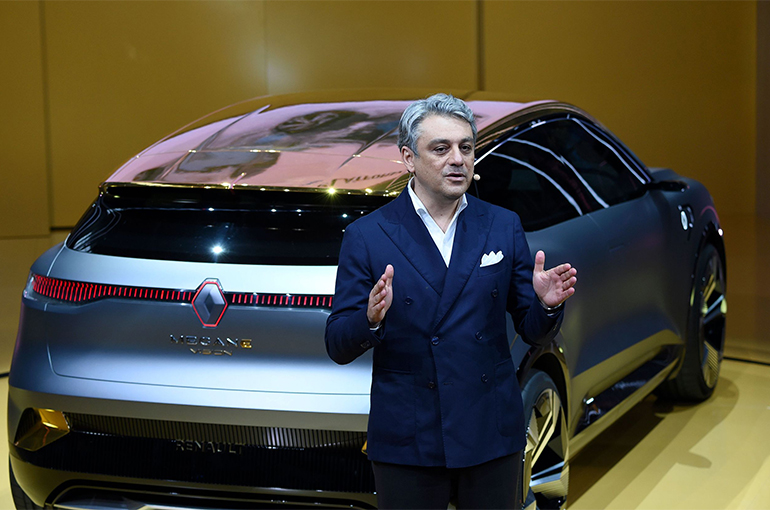 Europe’s Carmakers Can Learn From Chinese Rivals, Renault Boss Says
Europe’s Carmakers Can Learn From Chinese Rivals, Renault Boss Says(Yicai) March 20 -- Closing the door to China’s carmakers would be the worst possible response by Europe to the influx of Chinese autos, the chief executive of Renault Group said, adding that it is in their interest to learn from these competitors.
Chinese automakers are “a generation ahead,” Luca de Meo said yesterday in a letter to European politicians titled ‘Advocacy for a sustainable, inclusive and competitive automotive industry.’
China leads in terms of the performance and costs of electric vehicles, including range, charging time, and charging network, as well as the software and speed of developing new models, which is one and a half to two years for Chinese firms versus three to five years for European ones, de Meo said.
“The shift to EVs is a huge challenge that is completely transforming the industry,” de Meo noted. “European players in this sector are under huge pressure,” he added, pointing out six simultaneous challenges: decarbonization, the digital revolution, regulation, technological volatility, price volatility, and workforce reskilling.
De Meo, who is also president of the European Automobile Manufacturers' Association, proposed developing an industrial strategy for Europe, such as "deploying a regulatory framework with a stable base but open-ended content, on the same lines as the Chinese model.
“Europe should also accelerate the development of smart, hyper-connected autonomous vehicles,” he said. “A policy needs to be implemented in this area to support and stimulate digital innovation. By deploying common standards, inspired by the example of China, manufacturers could share an estimated 70 percent of the technical content of cars.”
Europe should also create green economic areas inspired by China's special economic zones, according to de Meo. These areas would receive more subsidies and industrial investment, while taxes and wage costs would be lowered over a decade to build an EV ecosystem, he said.
De Meo penned the letter ahead European parliament elections scheduled for June 6 to 9 to contribute to a decision on the right policy to enable Europe’s businesses to meet technological and geopolitical challenges.
Since last October, the European Commission has launched an anti-subsidy investigation into the imports of battery EVs from China.
“Global markets are now flooded with cheaper Chinese electric cars, and their price is kept artificially low by huge state subsidies,” EC President Ursula von der Leyen said in her annual State of the Union address on Sept. 13.
China exported 4.91 million cars last year, up 58 percent from a year earlier, with exports of new energy vehicles surging 78 percent to 1.2 million, according to data from the China Association of Automobile Manufacturers. Chinese EVs had an almost 4 percent share of the European market in 2022.
Editor: Martin Kadiev